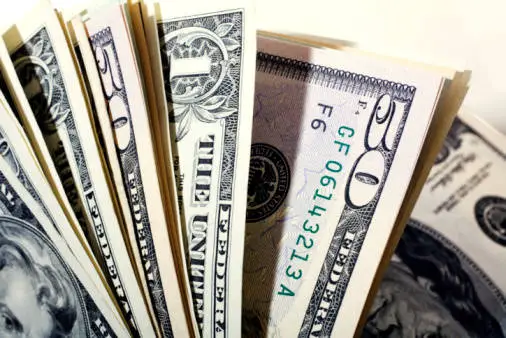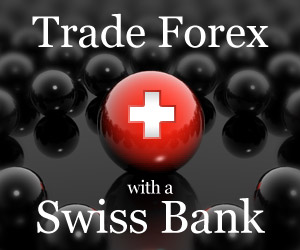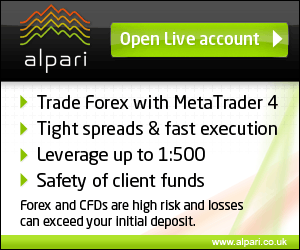High Dividend Stocks - Low Risk Investment Opportunity
High dividend stocks represent an important asset class which can contribute greatly to the overall performance of your stock investments.
When you are investing in stocks, there are two sources of yield you can count on. The first, and in most cases the most important one is capital gain. This is calculated as the difference between the buying and selling price of your securities. The higher the difference, the more you have earned. Let's look at an example. If you bought 100 lots of Microsoft shares, each at $20 and sell them one year later at $22, you have made a 10% capital gain profit or in absolute terms $200. How did we calculate that? Selling price ($22) minus buying price ($20) equals $2 per share or 10% if compared to the buying price. Since you have bought 100 shares, you have earned $200. This is simple, right? Of course, if your selling price is below the buying price, you have lost some money.
In the time while you were holding the 100 shares of Microsoft, the company paid out the dividend. Dividends represent part of the company's profit, which was earned in this or past years. If the dividend is paid out and how high it will be is something that company shareholders confirm on the shareholders meeting, based on the suggestion of the executives board. Dividends usually represent between 2% and 5% of yearly stock yield, but in some cases dividend yields are even much higher; they might be well over 20% as well. Before investing in high dividend stocks you should consider few important issues first.
Which Companies Payout High Dividends?

One of the most important questions you have to answer and understand is "Why would a company pay out the dividend to its shareholders?". Well, from the shareholder's point of view, I am only interested to invest in a company, if there is high enough yield that I can expect from the investment. Since more risk is involved than with bank deposit, I also expect higher yield than in case of bank deposit. Remember, this is risk/reward correlation. So, as a shareholder, I can expect my yield to be composed out of capital gain and dividends. I really don't care if the first or the second source of my income is higher than the other, the only thing I am interested in by the end of the year is how much I have made in percentage terms, what is my return on investment.
From the company's point of view, it makes a big difference if it pays out the dividend or not. You can look at the dividend as the free cash flow out of the maid profit, which can be paid out to shareholders or retained in the company. Now, why would the company be interested in retaining the profit? Well, to invest in future business of course. Maybe there are some old facilities in the industry that have to be replaced, maybe the company is interested to expand on new markets, it could be by organic (self) growth or by acquiring competitors. There are number of ways the company can spend the money in the future growth of its business. If the management present me the goals that I am satisfied with and believe in the business idea, than I will support them on the shareholders meeting and will give away the dividend idea in exchange for greater future capital gain, and vice versa. If the company is well established, if it has no idea where else to grow further, it is best of the management to pay out the company's profit to shareholders in the form of dividend.
The usual situation is in between. The company pays out some of the profit to shareholders (dividend) while they also retain some of it to finance future business. You can expect blue-chip companies to pay out steady and relatively high dividends, while many growth companies reinvest most of the profit in future business. Investing in high dividend stocks is therefore threaded as relatively safe investing, since you indirectly invest in big, good established companies. However, when you see companies paying out dividend of 10% or even more, be careful. Usually there is a higher risk related to such investments. Maybe the management of the company has no further idea about how to expand, maybe it is one time high payout only, or there could be any other reason why the payout is so high. You simply have to check it.
High Dividend Stocks for 2011
You are probably interested in stocks which payout or will probably payout highest dividends this year, right? Well, here are some of them: AT&T, Verizon, Chevron, E.I. du Pont de Nemours, Intel, Johnson & Johnson, Kraft Foods, McDonald's, Pfizer, and Merck. As you might have noticed, all these companies are actually blue chips, well know multinational companies. Surprised? You shouldn't be if you have read this post from the beginning. Anyway, the selection of this companies was actually made by analysts opinions and pulled together in an article written by Angus Robertson, 10 Stocks With Highest Dividend for 2011. We suggest you to read the article and reasons why these stocks are included in the list.
High Dividend ETF's
Besides searching for regular high dividend stocks, you can also choose an alternative to high dividend investing with Exchange Traded Funds (ETFs). There are many ETFs specialized in investing or tracking with their portfolio indices, which are constituted from high dividend stocks. By investing in ETF, you can spread the risk and significantly lower your transaction costs. However, you still have to choose one of the available funds, since there are many out there: Vanguard Dividend Appreciation Fund (AMEX: VIG) in one of the most cost effective choices with expense ratio of only 0.26%, or maybe First Trust Morningstar Dividend Leaders (AMEX: FDL), which tracks the index of 100 highest-yielding stocks, or State Street SPDR Dividend (AMEX: SDY), which invests in the 50 highest dividend-yielding stocks in S&P Composite 1500 Index. More risk-averse investors might be interested in /Zacks Yield Hog ETF (AMEX: CVY), which goal is to double the yield of other dividend paying ETFs. This fund invests in proffered shares, limited partnerships, closed-end funds, ADRs, REITs and similar. Here is a list of High Dividend ETFs.
Written by: Goran Dolenc
Do you find this content useful? Like! Tweet! Recommend! Share!
Back from High Dividend Stocks to Stock Market Basics
Back from High Dividend Stocks to Best Online Trading Site for Beginners home page







